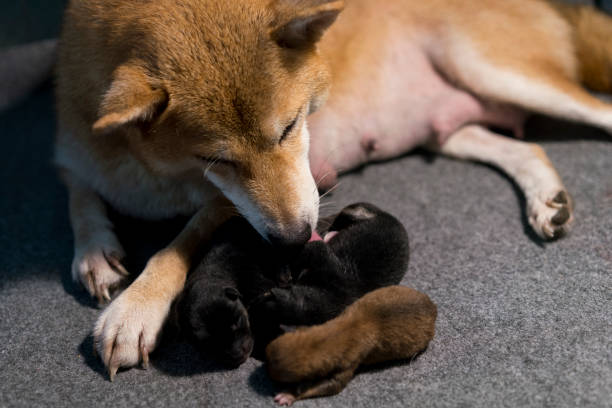Maternal Behaviour in Domestic Dogs

Mammalian parental care, in most of the cases, is given by the female, who provides food, warmth, and protection. In domestic dogs, maternal behaviour shown by the dam mainly consists of contact, nursing, grooming/licking, play, punishment, thermoregulation, and motion. Peer-reviewed literature published between 1952 and 2018 was retrieved from CAB Abstracts, PubMed, ISI Web of Knowledge, Scopus and book chapters. Keywords for this search included the following terms: behaviour, bonding, altricial, precocial, offspring, maternal, whelping, nursing, domestic dogs, female dog, aggression, puppies, anogenital licking. In this review, we reported and discussed scientific information about maternal behaviour in domestic bitches, comparing altricial vs precocial species; the importance of the bonding, grooming/licking and nursing, and their impacts on puppies’ behaviour; altered maternal behaviours such as aggression, cannibalism, rejection, and also the relation between hormones and maternal care behaviours. We concluded that the level of interactions between the dam and the puppies influences the physiological, cognitive and behavioural development of the litter, and the main hormones in the bitch for inducing maternal care behaviours are estradiol, oxytocin, prolactin and progesterone.
Topic(s): Behavior, Breeder Resource, Maternal Care, Puppy Development